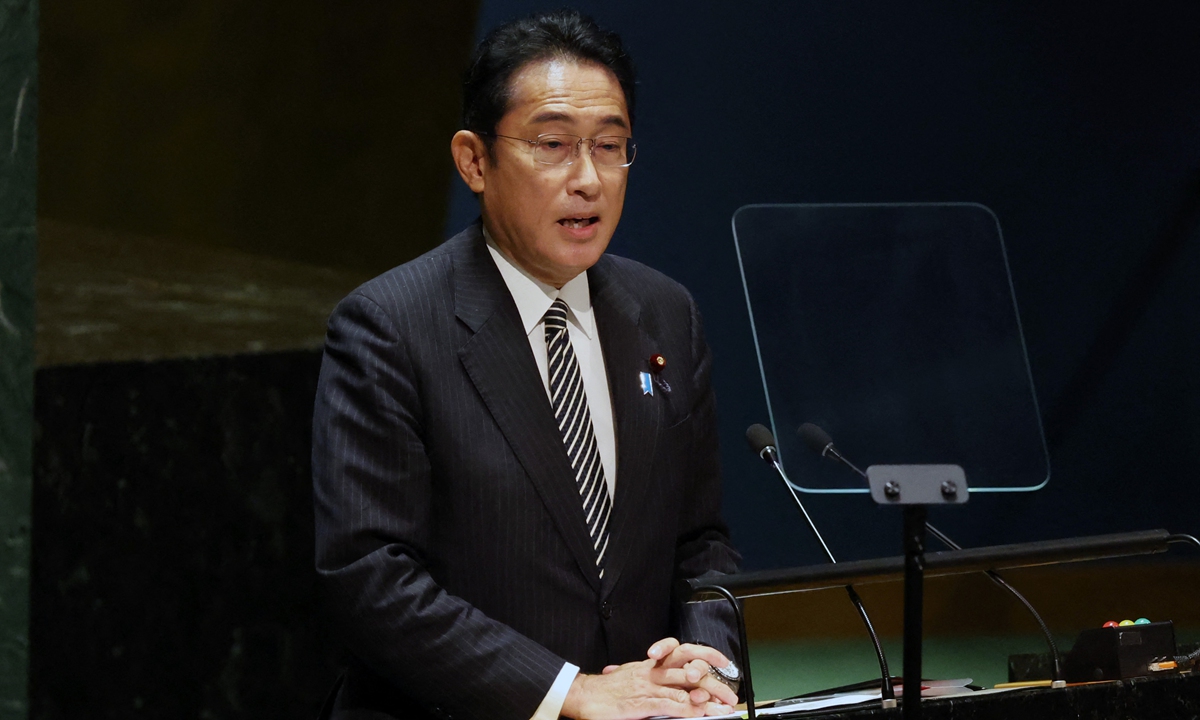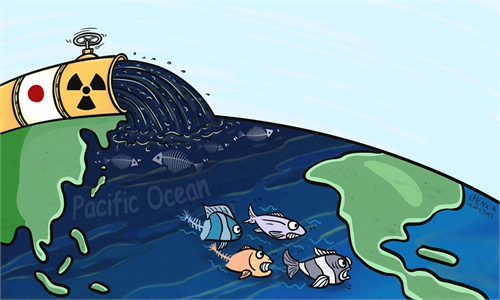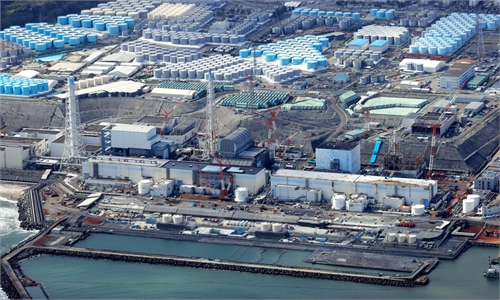
Prime Minister of Japan, Fumio Kishida speaks at the start of the tenth annual review of the Nuclear Non-Proliferation Treaty at UN headquarters on August 01, 2022 in New York City.Photo: AFP
Japanese Prime Minister Fumio Kishida urged all nuclear countries to conduct themselves "responsibly" in non-proliferation efforts on Monday when he spoke at the Review Conference of the Parties to the Treaty on the Non-Proliferation of Nuclear Weapons (NPT) at the United Nations in New York.
The NPT Review Conference is held regularly to have discussions focused on the three pillars of nuclear disarmament, nuclear non-proliferation and peaceful uses of nuclear energy.
The issue of releasing nuclear contaminated water from the crippled Fukushima Daiichi nuclear power station is also on the agenda. In his speech, Kishida, who already foresaw related discussion unfavorable to Japan, was giving the runaround to avoid being criticized due to Japan's extremely irresponsible plan to release contaminated water. In fact, the review conference will be between August 1-26, but Kishida is scheduled to return to Japan on August 2 after delivering his speech on the first day of the conference, at a time when specific discussion of issues on the agenda have not yet begun. No one will be able to find Kishida when the issue of releasing nuclear contaminated water is on the table.
Since its entry into force, the NPT as an international framework has guided various countries to use nuclear science and technology for peace and development. Peaceful use of nuclear energy is allowed, but it's appalling that Japan decided to discharge nuclear contaminated water into the ocean. But how serious the consequences will be after the actual dump? It will be unpredictable and irreversible.
It's ridiculous that Japan's actions, which may have far-reaching impact on the world, have been "approved" and tolerated by the US. In contrast, the leakage of the Chernobyl nuclear power plant in the former Soviet Union is still strongly criticized by the US. This is undoubtedly a double standard. Wang Guangtao, an associated research fellow at the Center for Japanese Studies, Fudan University, believes that geographically speaking, although the US is also a Pacific country, judging from the flow direction and diffusion trajectory of ocean currents, nuclear contaminated water discharged by Japan will first affect Japan's neighboring countries, not the US on the other side of the Pacific Ocean.
Japan is the only country that experienced the nuclear attack. The US has been reluctant to criticize Japan over the release of nuclear contaminated water because of the sense of guilt and its own dark history in terms of nuclear radiation.
Japan and the US maintain close communication based on the alliance, and the US is bound to side with its Asian ally, rather than listen to the opposition of neighboring countries such as China and South Korea. The possibility that the US and Japan may have reached a deal under the table cannot be ruled out, as Japan, an East Asian country, first informed the US when it decided to release the nuclear contaminated water into the sea. The report released by Japanese expert panel which calculated anticipated radiation dose to the locals after discharging all the water to the sea was soon endorsed by the International Atomic Energy Agency, in which the US is quite influential. This undoubtedly mirrors the hypocrisy of "rules-based international order" the US has vaunted.
Covered up by the US, Japan has been brazenly manipulating the nuclear issue. On the issue of nuclear safety, it is ultimately Japan that should be responsible for the health and safety of all humankind, rather than urging others to act "responsibly" when it's on the verge of discharging nuclear contaminated water into the ocean.


